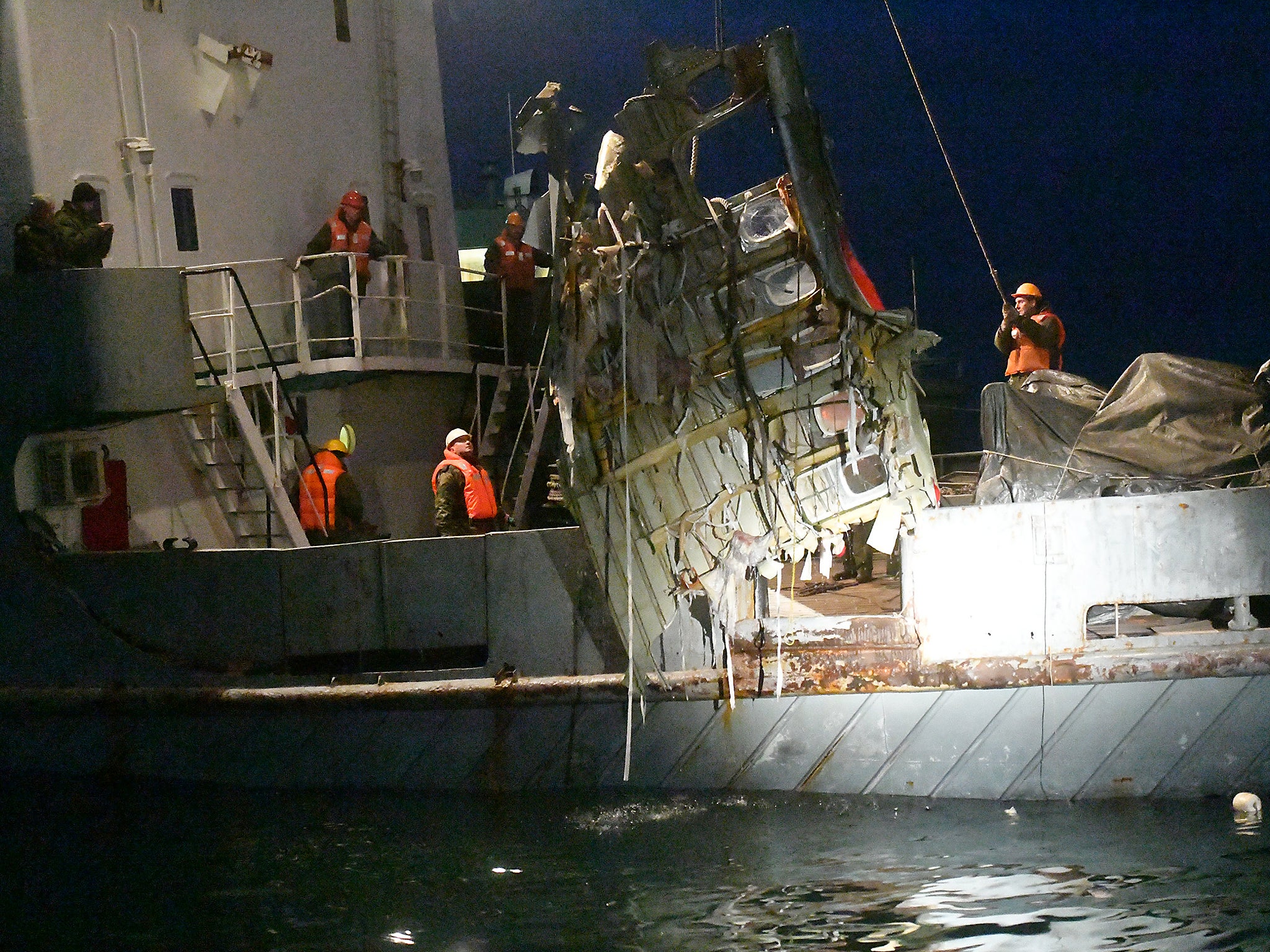Russia plane crash: Investigators have not ruled out terrorism as cause of Black Sea incident
Lieutenant-General Sergei Bainetov says the commission investigating the crash is considering around seven possible causes

Russian authorities say they have not ruled out terrorism as the cause of the crash of a military plane into the Black Sea on Christmas Day.
The Tupolev TU-154 flight was en route to Syria with 92 people on board when it plunged into the sea shortly after takeoff from Sochi in southern Russia. There were no survivors.
Investigators said pilot error or a technical fault were the most likely reasons for the disaster but terrorism could not be ruled out.
Lieutenant-General Sergei Bainetov, the Russian air force’s head of flight safety, said: “The was no explosion on board but this isn’t the only type of terrorist act ... It could have been any type of mechanical impact, so we don’t rule out a terrorist act.”
He said the commission was currently investigating around seven theories that include poor quality fuel causing engine failure and a bird getting caught up in the engine but there was “no leading theory”.
Lt Gen Bainetov said it would take at least 10 days to decipher the aircraft’s main flight recorder, which arrived back in Moscow on Wednesday, and there would be no final conclusions about the cause of the crash for at least 30 days.
He added that the TU-154, an ageing Soviet-era aircraft, would not be phased out following the crash but Russian news agencies had earlier reported that the military had temporarily grounded all TU-154 planes until the cause of the crash could be determined.
The Tu-154 of the Russian Defence Ministry crashed into the sea early Sunday, moments after taking off in good weather. Mr Bainetov said that the plane crashed 70 seconds after takeoff from an altitude of 250 metres while it was travelling at a speed of 224 to 230 miles per hour.
“After deciphering the first flight recorder we have made a conclusion that there was no explosion on board,” Mr Bainetov said.
He wouldn’t offer any details, saying that Russian law-enforcement agencies are working on the case.
Mr Bainetov’s words appeared to contradict a previous statement from Russia’s top domestic security and counter-terrorism agency, the FSB, which has said it found “no indications or facts pointing at the possibility of a terror attack or an act of sabotage”.
Mr Bainetov noted that “according to a preliminary assessment of information from the flight parameter recorder there had been no obvious equipment failures”.
In an apparent attempt to downplay Mr Bainetov’s statement, Russian transport minister Maxim Sokolov emphasised that “the version of a terror attack isn’t being considered as the main version”.
Search and rescue teams have been scouring a stretch of water roughly 1 mile from Sochi.
Mr Sokolov said they had so far recovered 19 bodies, 230 body fragments and nearly 2,000 pieces of debris from the aircraft.
Passengers on board the flight included the official choir of the Russian armed forces, the Alexandrov Ensemble, and humanitarian and businesswoman Elizaveta Glinka who was en route to deliver medical supplies to a hospital in Latakia, Syria.
Additional reporting by Reuters
Join our commenting forum
Join thought-provoking conversations, follow other Independent readers and see their replies
Comments
Bookmark popover
Removed from bookmarks